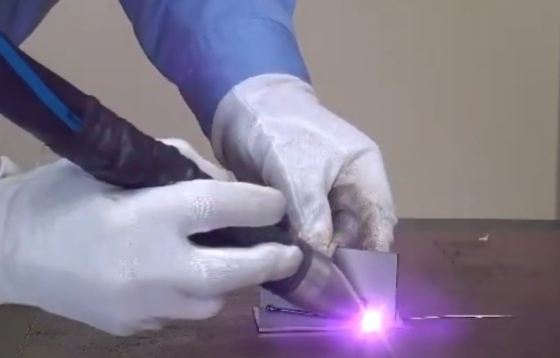
The emergence of laser welding technology makes up for the shortcomings of traditional welding, and it is quickly favored by modern manufacturing industry by virtue of the incomparable advantages of other welding technologies. Many friends in the purchase of fiber laser welding machine, often do not understand the fiber laser welding machine in the market is divided into: fiber transmission laser welding machine and continuous fiber laser welding machine, the two have different light-emitting methods and light-emitting principle. Let us look at the differences between the two fiber laser welding machines:
1. The continuity of the output time is different: continuous laser means that the laser is continuous in output time, and the laser output of the pulsed laser is discontinuous. Therefore, pulsed lasers are often used to measure ultra-fast physical processes, while continuous lasers achieve very narrow linewidths by frequency stabilization for laser ranging and fine spectroscopy.
2. The peak power varies greatly: peak power is the highest power that the laser can achieve. A good semiconductor laser in a continuous laser can reach millions of orders, while a pulsed laser femtosecond can achieve a TW order. The shorter the pulse width, the less the thermal effect, and the more the pulsed laser is used in fine processing.
3. The application range is different: pulse laser welding machine is generally used for spot welding, and continuous laser welding machine is generally used for seam welding. Their welding thickness and welding effect are mainly related to the power and spot pattern of the laser, and have little continuity with the laser. Under the same conditions, the life of a continuous laser welding machine is shorter.
4. Different welding efficiency: The efficiency of continuous fiber laser welding machine is generally more than 5 times that of pulsed fiber laser welding machine.
5. Taking steel as an example, the continuous laser welding machine can weld 3mm thick stainless steel plate, and the fiber transmission laser welding machine is equipped with CCD camera monitoring system for easy observation and precise positioning. The energy distribution is uniform and has the ideal spot size required for soldering properties. Adapt to a variety of complex welds, spot welding of various components, and seam welding of thin plates within 1mm.
6. Continuous fiber laser welding machine can weld aluminum, aluminum alloy, and other highly reflective materials.